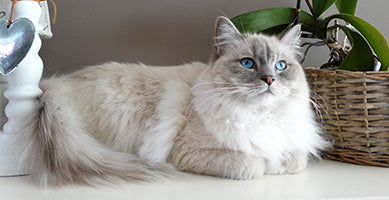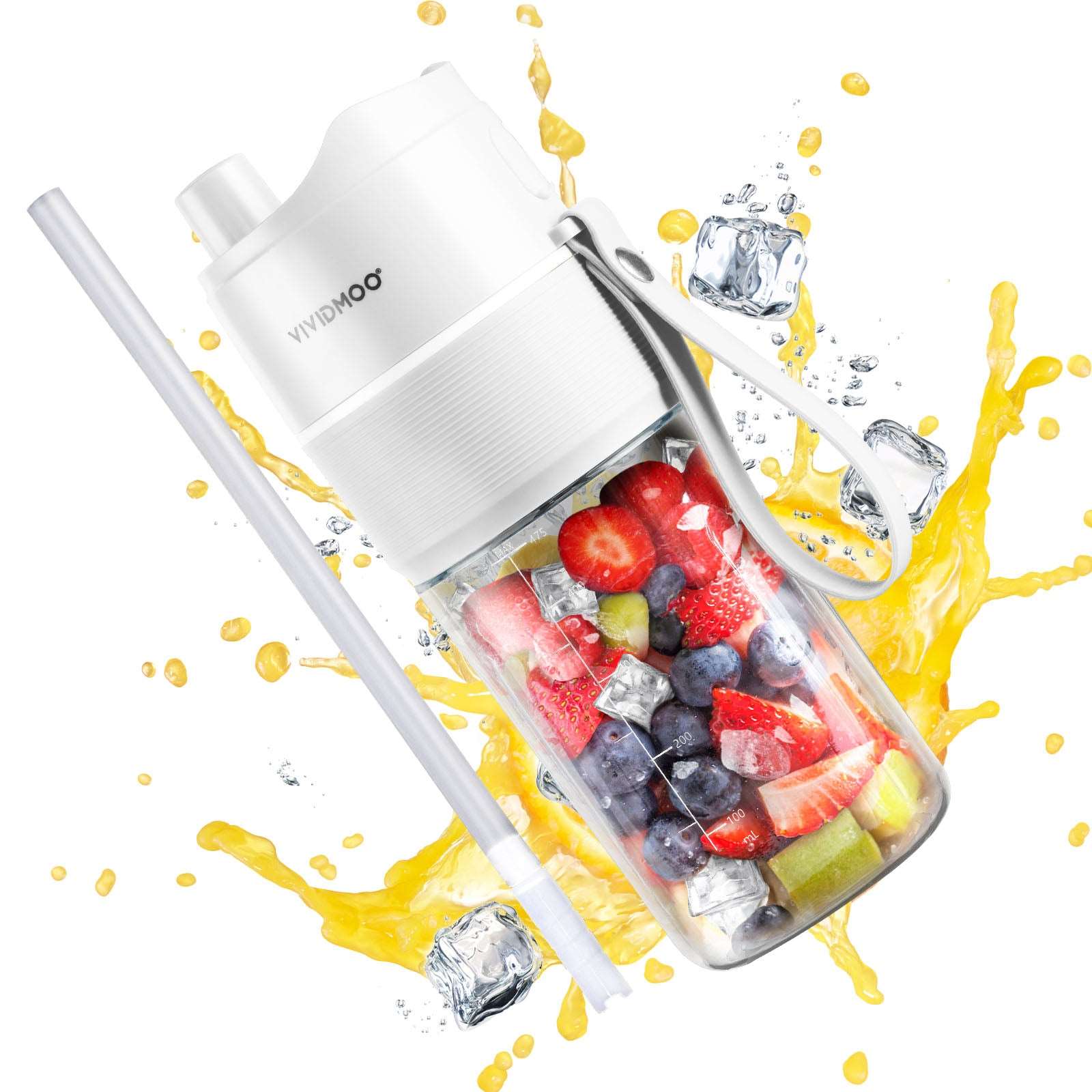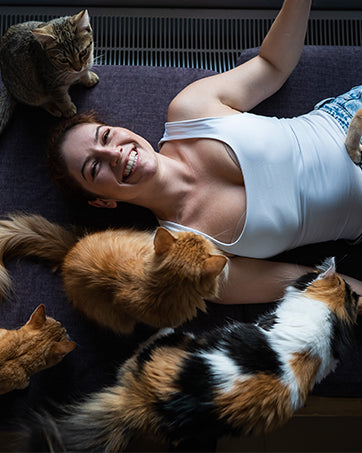Jessica W. Kelvin - Mar.05.2024
Why Do Cats Eat Grass?
7 Insights into Feline Behavior

FAQ about Cat Litter Box Filters
Est. read time: 4 min.
FFor cat owners, the litter box is an essential part of their pet's daily life, but managing it can be less than pleasant. Enter the innovative solution from vividmoo: an intelligent automatic cleaning cat litter box designed to make this aspect of pet care as hassle-free as possible. One critical component that ensures its efficiency and effectiveness is the filter. The right filter can significantly enhance the cleaning process, control odors, and provide your furry friend with a clean, comfortable environment. In this blog, we'll address some of the most frequently asked questions about smart cat litter box filters, helping you make the best choice for your pet and your home.
Why Filter Size Matters
The size of the filter holes plays a crucial role in the performance of your cat litter box. Filters with too large holes might not capture all the waste, leading to incomplete cleaning and odor control. Conversely, too small holes can clog easily, hindering the automatic cleaning process and requiring frequent maintenance. For most cat owners, a medium-sized filter hole strikes the perfect balance, efficiently separating waste while allowing clean litter to pass through. This ensures that your vividmoo litter box operates smoothly, maintaining cleanliness and odor control without constant intervention.
In the next sections, we'll explore the durability of different filter materials and offer solutions for oversized filter holes. Stay tuned!

Choosing the Right Filter Material
When it comes to the durability and longevity of cat litter box filters, the material makes all the difference. Common materials include paper-based filters, which are disposable and convenient but may require frequent replacements, and more durable options like plastic or metal meshes, which are washable and reusable. For owners seeking a balance between durability and maintenance ease, vividmoo recommends high-quality, recyclable plastic filters. These are designed to withstand the rigors of automatic cleaning cycles while being gentle enough not to damage the litter pellets. Choosing a durable material not only extends the life of your filter but also ensures consistent performance of the litter box, making your investment in a vividmoo product even more worthwhile.
Solutions for Oversized Filter Holes
Occasionally, cat owners may find that the holes in their litter box filter are too large, allowing waste to slip through or causing too much clean litter to be discarded. If you encounter this issue with your vividmoo litter box, here are a few tips:
Adjust the Tilt:
Some automatic litter boxes allow you to adjust the tilt angle, which can help control how much litter passes through the filter.
Supplemental Screening: Consider adding a secondary, finer mesh beneath the existing filter to catch any waste that slips through without obstructing the cleaning mechanism.
Contact Support: vividmoo is committed to customer satisfaction. If the filter isn't meeting your needs, contacting customer support can provide you with solutions, including replacement filters that might better suit your cat's litter box usage.

Cats:Theobromine Toxic Consumption
Most Cats: 1-10 lbs(0.45-4.6 kg), Large Cats11-25 lbs(5-11.4 kg)
Cacao Beans: Most Cats> 0.05 oz, Large Cats> 0.5 0z
Unsweetened Baking Chocolate: Most Cats> 0.2 oz, Large Cats>2 0z
Dark Chocolate: Most Cats> 0.5 0z, Large Cats>7 oz
Milk Chocolate: Most Cats>1.5 0z, Large Cats>16.5 0Z
White Chocolate: Most Cats>360 oz, Large Cats>4000 0z
Cocoa Powder: Most Cats> 01 0z, Large Cats>10z
Cocoa Bean Mulch: Most Cats>0.1 0z, Large Cats>1 0z
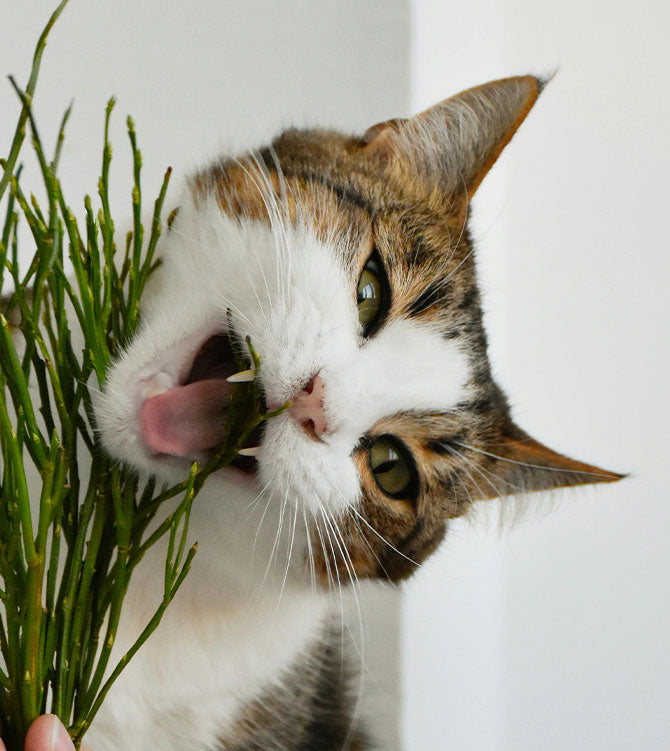
Showing making procedure is a good way to guarantee product quality
Stress Relief
Eating grass can also serve as a form of stress relief for cats, providing a calming activity that distracts from anxiety or boredom.
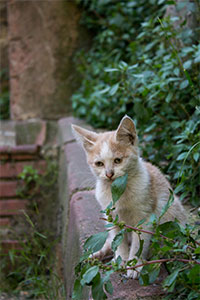
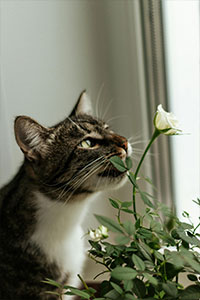
Get customer attention by clean visual and video
Instinctual Actions
Grass eating is an instinctual behavior that may stem from a cat's need to seek out alternative food sources or to induce vomiting to clear their stomachs of indigestible materials.
Maintenance and Replacement Tips
To ensure your vividmoo intelligent automatic cleaning cat litter box continues to operate efficiently, regular maintenance and timely replacement of the filter are essential. Here are some guidelines to keep in mind:
Regular Checks: Inspect the filter monthly for signs of wear and tear or clogging, which can affect the litter box's performance.
Cleaning: If your filter is washable, follow the manufacturer's instructions for cleaning, typically involving gentle washing and air drying.
Replacement: Depending on your cat's usage and the filter material, you might need to replace the filter every 3 to 6 months. Always use vividmoo-approved filters to ensure compatibility and optimal performance.
Article credit: Heidi Cohen (https://heidicohen.com/use-blog-to-sell/)
Digestive Aid
Grass acts as a natural laxative, helping cats pass hairballs or other indigestible items through their digestive tract more easily.
Elimination of Parasites
It's also theorized that grass eating may help cats eliminate intestinal parasites, although this benefit is more anecdotal than scientifically proven.
Conclusion
Choosing the right filter for your vividmoo intelligent automatic cleaning cat litter box is crucial for maintaining a clean, odor-free environment for your cat. By considering the size of the filter holes, the material's durability, and addressing any issues with oversized holes, you can ensure that your litter box functions efficiently. Regular maintenance and timely replacement of the filter will keep the cleaning mechanism running smoothly, making pet care easier and more enjoyable for both you and your furry friend.
CTA (Call To Action)
For more information on the vividmoo smart cat litter box and its innovative filter solutions, visit our website. Have questions or want to share your experience with the vividmoo litter box? Leave a comment below or reach out to our dedicated customer support team. Let us help you make your pet care experience as effortless and satisfying as possible.

How to Safely Introduce Grass to Your Cat
Suitable Types of Grass
Certain types of grass are more beneficial and safer for cats, including wheatgrass, which is often sold as "cat grass."
Growing Your Own Cat
Grass
For the safety and health of your cat, consider growing your own cat grass at home. It's a simple and effective way to ensure they're getting a safe product.
Alternative Behaviors and Solutions
Dietary Supplements
If your cat shows an excessive interest in eating grass, it might indicate a dietary deficiency. Consult with a veterinarian about supplementing your cat's diet.
Behavioral Enrichment
Providing toys, climbing structures, and engaging activities can reduce your cat's inclination to eat grass by offering alternative forms of stimulation.
Why Do Cats Eat Grass?
Exploring the curiosity behind this behavior reveals a complex blend of nutritional, psychological, and instinctual factors. Understanding these can help cat owners provide better care and enrichment for their feline friends.
Owner Experiences and Advice
Personal Anecdotes
Many cat owners have observed their pets eating grass and have noted the benefits or concerns that came with it. Sharing these experiences can offer valuable insights for other pet owners.
Expert Recommendations
Veterinarians and animal behaviorists can provide professional advice on managing grass-eating behavior, ensuring it remains a safe and positive experience for your cat.
FAQs
Cats should not eat chocolate ice cream; not only is chocolate toxic to cats, but ice cream often contains toxic ingredient propylene glycol. Ingesting propylene glycol can lead to anemia in cats.
Say it at the end
Understanding why cats eat grass sheds light on their complex behaviors and the natural instincts that drive them. By providing safe, suitable grass and paying attention to the underlying reasons for this behavior, cat owners can ensure their feline companions lead happy, healthy lives.



